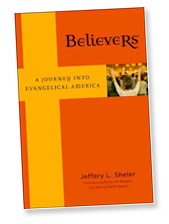COMMENTARY: What if Jesus had not come?
Posted: 12/15/06
COMMENTARY:
What if Jesus had not come?
By Marcus Norris
At Christmas, we celebrate the birth of Christ. However, when you have been doing something for over 2,000 years there is a risk of losing the reason for and vibrancy of the celebration. So, in an effort to remind us “why” we celebrate his birth, consider what life would be like if there had been no babe in a Bethlehem manger.
An empty manger would mean:
• No angelic announcements.
• No invitation to humble shepherds as representatives of the less fortunate.
• No star to beckon the wealthy and wise.
• No model of obedience in Joseph fleeing with his family to Egypt.
• No miraculous healings or feedings.
• No Sermon on the Mount to correct our understanding of God’s law.
• No washed feet, no cross, no empty tomb.
• No church.
• No New Testament.
Let that reality soak in for a moment. Now consider the implications that would ripple through all the ages and to every corner of our planet:
• As Gentiles, most of us would now be engaged in some form of pagan religion.
• For those who might find their way to the God of Israel, you would discover a legalistic covenant under Old Testament law. You would depend upon the blood of animals for atonement and, in despair, await some prophet to bring us a word from the Lord—or better yet, the appearing of the Messiah would usher in a new age.
• There would be no Christian orphanages, and the orphanages that might exist probably would resemble the godless warehouses of the old Soviet Union.
• There would be no church-sponsored hospitals to relieve human suffering.
• There would be no Salvation Army or myriad other Christian welfare agencies/missions.
• There would be no Christmas carols or grand hymns such as “Amazing Grace,” “What A Friend We Have in Jesus” or “It is Well With My Soul.”
• The other major religions largely are ethnocentric. Neither Judaism, Buddhism, nor Hinduism have aggressively reached out to other nations to offer them food, medicine or other ministry. Islam still would go about conquering lands and imposing the fascism of sharia law.
• Cemeteries would echo with wails of ultimate despair and loss.
• Concepts that enrich our society, such as the quality, dignity and worth of all people, would not exist because no other religion has embraced those concepts as much as Christianity.
Our world would be starkly different if there had never been a babe in a manger. But, praise God, he did send his Son to that manger! God chose to establish a new covenant of grace through faith that is available to all people. Because of that single event, our world has been positively changed in so many ways, and we have salvation and hope. Merry Christmas, indeed!
Marcus Norris is an attorney and lay member of First Baptist Church in Amarillo. (Copyright; all rights reserved.)


